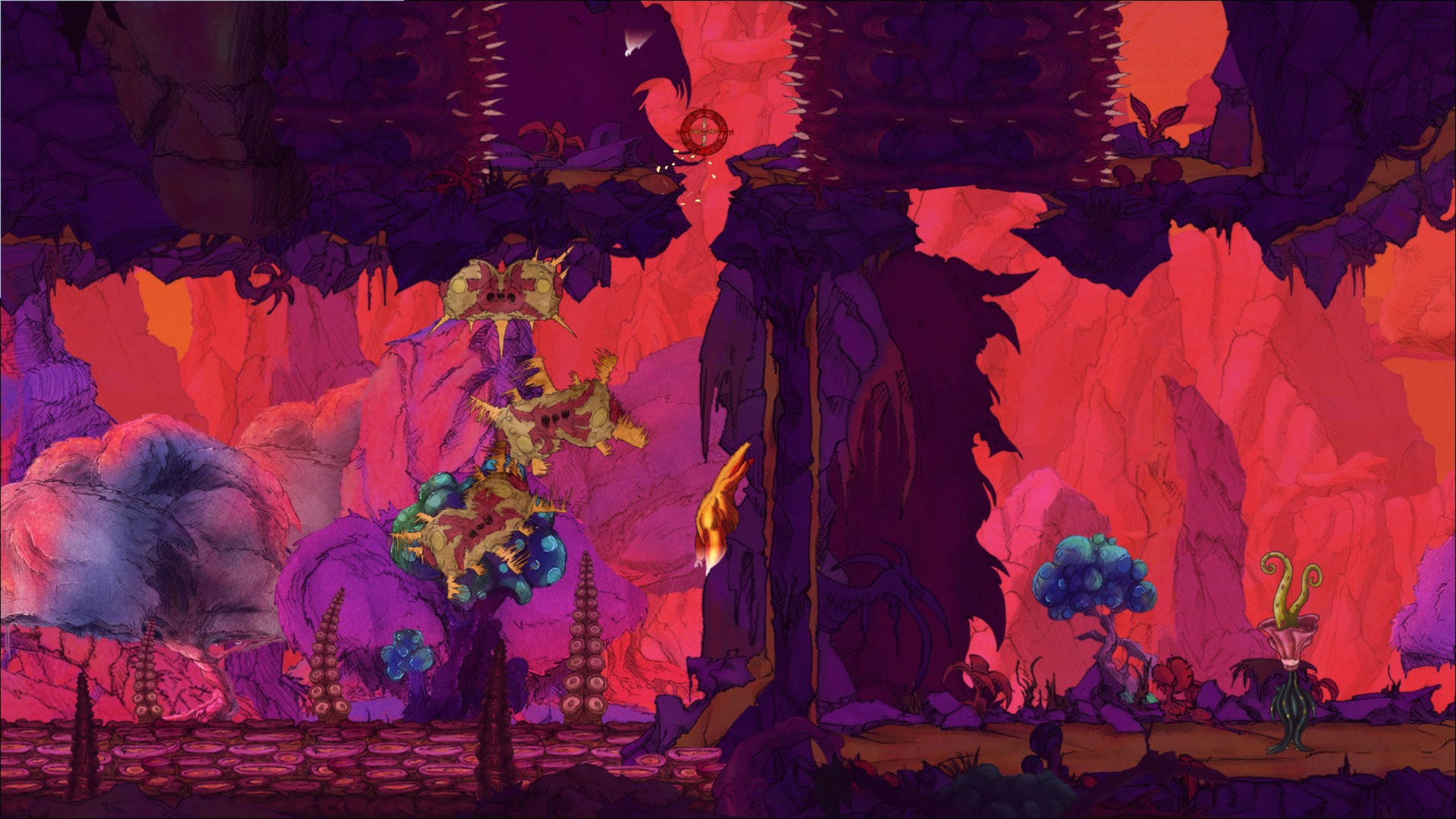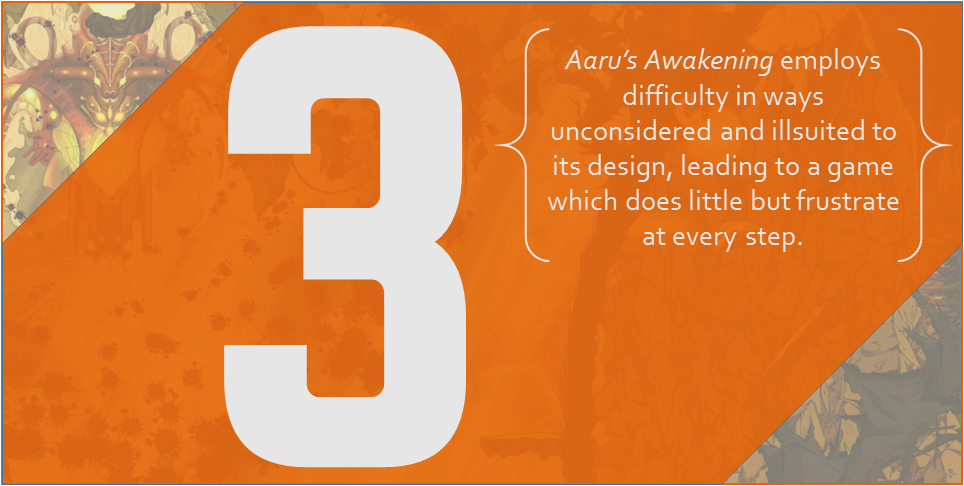The Existential Inauthenticity of Aaru's Awakening
Existentialism posits, in terms that could only be described as one of my most extreme summarizations, that in order to live authentically one must create purpose within themselves rather than by relying on outside sources or the idea of predeterminism. This isn’t to say that authenticity can only be derived through a complete rejection of social norms, but rather that one must live in accordance with their own identity rather than the expectations and perceived requirements of others. Though to apply abstract philosophical concepts to a game as if it is itself an autonomous entity is in many ways ridiculous, I feel that existentialism and its definition of authenticity provides an ideal jumping off point at which to understand Aaru’s Awakening and why it fails on so many levels at what it attempts to be. In many ways Aaru’s Awakening does itself seem to toy with many of the tenants of existentialism, at least within the confines of its narrative which places the naïve Aaru within the midst of an ongoing celestial war between the deities Dawn, Day, Dusk, and Night. In often exaggeratedly blunt terms, Aaru’s Awakening seems to wish to question the notion that any of us are created for a predestined purpose, or if we are not instead nothing more or less than what we make ourselves out to be. It is difficult to really draw much away from the themes posed by Aaru’s Awakening though due to just how on-the-nose and traditional they ultimately are, tending to head in the right direction but not really wishing to delve into the questions it poses. Instead Aaru’s Awakening seems to employ quandaries on the meaning of life, the dangers of blind devotion (which could potentially be construed to be a condemnation of organized religion), and the true extents of personal freedom purely for the sake of attempting to inflate its sense of scale. Aaru’s Awakening would like you to believe its narrative is larger than life, but its attempts at creating this depth are so transparent and underdeveloped that they actively make the game seem smaller by failing to encompass the scope the game keeps reminding you of.
But really it is in Aaru’s Awakening’s systems and how they seem so entirely turned against one another that leads to the feeling that the game itself is experiencing an entirely unintended existential crisis. Most telling is in the way Aaru’s Awakening abuses difficulty in its attempts to create an identity founded upon its own challenging nature, as if merely by establishing itself as excruciatingly demanding it might slip unquestioned into the cannon of games as beloved as Super Meat Boy and Electronic Super Joy. But while there is nothing inherently wrong with challenge, there is nothing in Aaru’s Awakening’s design that manages to establish its difficulty as purposeful and considered rather than entirely arbitrary.

There is a lot in how Aaru’s Awakening plays which serves to facilitate challenge, but little that compliments it. The controls are too loose and by design are poorly served to the sort of split-second improvisation required by such arduous level designs. Your primary means of navigating these levels is an ability which allows you to throw out a ball of light and then instantly navigate to it, requiring you to have already planned out your moves before you need to make them so as to account for the time needed for the ball to travel forward. This, in practice, is a special sort of agony. Because of the speed at which you travel through levels, how relentlessly it seeks to kill you, and the inherent randomness of a thrown ball, I often found myself dying dozens and dozens of times solely because of a minor miscalculation in when or where I threw the ball, which tended to feel neither fair nor avoidable.
I am not bothered so much that Aaru’s Awakening is hard, but that it feels so completely pointless and unsatisfying to actually overcome its challenge. The difficulty is steep, but checkpoints are so prevalent that levels tend to feel designed and segmented purely for the sake of causing you to beat your head against a particular obstacle until you finally have one perfect run and then begin the process over again. There was no moment playing Aaru’s Awakening that success felt like anything more but brute force and blind luck. It’s a game which seems to wish to be one thing – a face paced, hyper difficult, speedrun focused platformer – but is at once entirely ill equipped to actually fit that role. In many ways it seems as if Aaru’s Awakening’s challenging surface elements were added after the fact, as if in the absence of frustration the game lacked a reason to be played.
And perhaps this might have been true, but with how beautiful Aaru’s Awakening is, being so very colorful and fluid and wondrously bizarre in its art direction (be sure to see it in motion, as screenshots do a very bad job as showcase), I feel that the game could have been far more cohesive and meaningful if it had attempted to find a direction to take its gameplay that played to the strengths of its presentation rather than serving to push you through it as quickly as possible. Had Aaru’s Awakening veered toward a more intentional and methodical experience, perhaps utilizing its teleport ability for puzzle solving or to allow you to traverse through levels at a more relaxed pace so as to appreciate how incredible they are to behold, it very likely might have arrived at a place more true to itself and by extension a more distinct and enjoyable game.
Final Word
Aaru’s Awakening feels like the regrettable result of a game attempting to ape its peers in the absence of its own identity. It is such a phenomenal artistic undertaking that it is intensely frustrating that it seems to aspire to be little more than a mushy pile of antagonistic mechanics and philosophical shower thoughts. Its identity is in constant limbo and never manages to arrive at a place which feels entirely its own rather than a poor approximation of ideas lifted from more successful games, like a man wearing another’s suit to pass himself off as more than he actually is, no matter how poor the fit and misguided the attempt.


